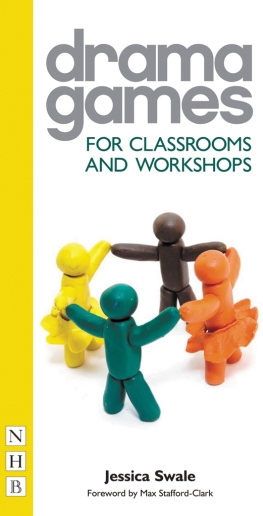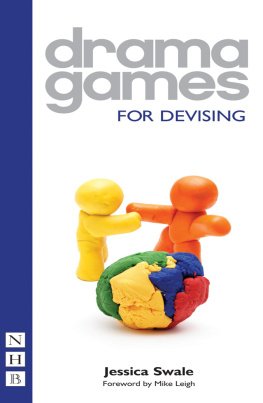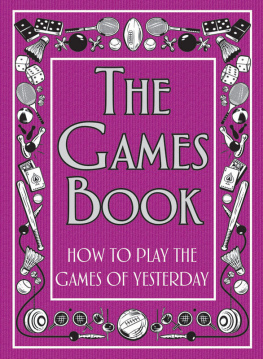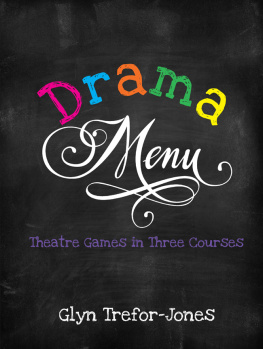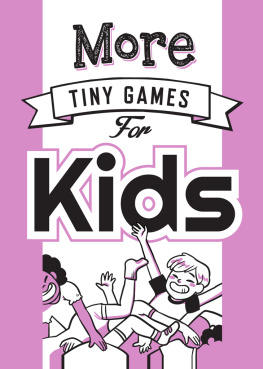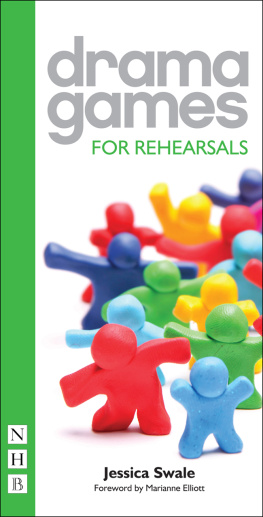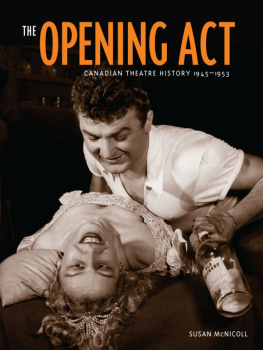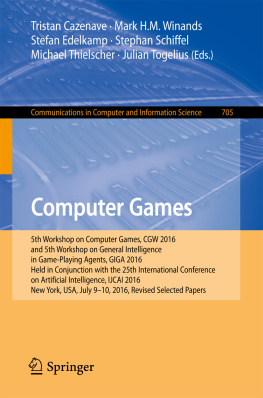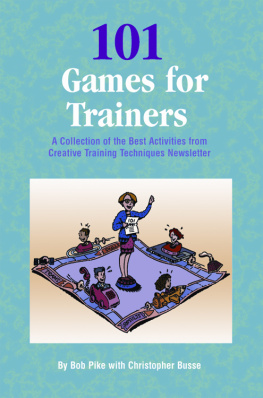
For James, with love
FOREWORD
I know Jessica Swale as a conscientious, talented and intelligent, young director. She was my assistant on The Overwhelming, JT Rogers fine play that opened at the National Theatre in a National/Out of Joint co-production in early 2006. She was a warm, inventive and positive presence in the rehearsal room. The actors loved her. I was even more impressed when she started her own theatre company, Red Handed, shortly afterwards. It requires tenacity, vision and courage to start your own theatre company in these times.
In this book, she has written an extraordinarily helpful compendium and guide to drama games that will be a valuable help to directors, teachers and workshop leaders.
One of the strange anomalies of theatre is that play, enjoyment and indeed childishness is such an essential part of the rehearsal room, but we have to plan and work hard to attain it. The director must also then apply it. I recall clearly as a young director observing the rehearsals of a director who was slightly my senior. Her rehearsals were exuberant, inventive and original. But when I saw the eventual production that emerged from these rehearsals it contained very little of these qualities. We must structure and work for invention and spontaneity but we must then return to the text and apply it. The liveliness of the rehearsal room must inform the text.
Jessicas book makes no claim to be either comprehensive or original. The games she lists are a stimulus to further invention and imagination: invent your own games. Her games have been pinched from everywhere. I recognised several of mine in there and in return I started making a list of games that I would pinch. I stopped when the list reached over twenty, and resolved to make the book a permanent assistant.
If you cant get to a workshop run by Jessica Swale then invite her to your next party, whether it is for kids or adults. She will be of hilarious value!
Max Stafford-Clark
INTRODUCTION
Why Play?
To play needs much work. But when we experience the work as play, then it is not work any more.
A play is play. Peter Brook
The concept of play has been a foundation of theatrical tradition for many years, since Stanislavsky and his contemporaries incorporated exercises into rehearsals. Games are used in the pursuit of the soul of a character, to explore the world of the play and to create dynamic relationships on stage. When used effectively, games can provide unparalleled opportunities for exploration and discovery. Whether working in a theatre company or in a school, in youth theatre or in outreach, they form an essential part of every modern practitioners toolkit.
The enduring popularity of drama games can be explained by the expansive range of skills that they develop in the participants. To actors, these exercises offer a lively means of exploring emotion, situation and character. For students, they provide an imaginative platform from which to jump, and in the community they offer a safe means of overcoming inhibitions and building relationships. Games can promote teamwork, spontaneity, confidence, trust and creativity, and many of them can be easily adapted to suit a range of workshop objectives. But how do you choose which to use? Where do you start and what are the challenges?
So often games are used as time-fillers by uninspired drama teachers who havent planned anything more structured to do. I remember the recurring feeling of disheartenment as a theatre-obsessed teenager, when, after playing Stuck in the Mud for half an hour, the drama teacher would utter the dreaded phrase, Weve got one hour left so go off and make up a play. Such unstructured sessions may occasionally provide creative opportunities by accident, but they can hardly be classed as stimulating. Creating dynamic drama workshops is not difficult, it just requires forethought. Games must be carefully selected; each exercise should filter into the wider objectives of the lesson like a tributary into a river. A good facilitator uses games like bricks to build towards a specific outcome. Choose the wrong bricks, and the lesson crumbles.
Distinctions Between Drama and Theatre
Drama games can be as useful in a social or educational context as they are in the theatre. The activities in this book work equally well in both scenarios. Whilst, as a director, I have used many of these games in rehearsal, sometimes their most rewarding use has been in the classroom, where young and inexperienced students have surprised themselves with their own imaginative capacity.
The games arise from a variety of sources. Some have roots in traditional childrens games. However, it is vital to note that playground games and drama activities are not one and the same. Some forms of traditional play promote competitiveness and superiority. In contrast, whilst there is often room for individuality in drama, its primary aim is to develop collaboration as a form of creative learning. Drama is, in a sense, an extension of play, refining certain aspects of natural play whilst discouraging elements that are counterproductive in a creative environment, like egoism.
Positive skill-building is the foundation of drama as an activity. This, in turn, is an ideal starting point for theatre-making. However, whether you want to extend your drama workshop towards the goal of performance is entirely your choice. Whilst theatre is a medium of performance created for the benefit of an audience, drama exists for the sake of its own participants. It is an active subject that uses theatrical values as a basis for creative engagement. This is a critical distinction to be made by those of us who work both as directors and workshop facilitators it is all too easy to be unfair and demand great performances from workshop participants who simply want to take part and gain social skills.
The Content of Your Workshop
The correct approach to workshop-leading has been a topic of debate for many years. Whether called a workshop leader, director, teacher, difficultator, overseer or side-coach, the role of the drama facilitator is undeniably complex. As Joan Littlewood commented, Chaos has to be very well organised.
A well-run drama session can offer a creative springboard, a chance to escape into an imaginative realm, a means of making something visceral and exciting which, whilst temporal, is shared in that moment by the participants in the room. This is the joy of facilitating.
Whatever the educational goals of a workshop, be they theatrical, creative, social or academic, there are two essential aspects of a successful session:
1. The participants ought to feel that something has been achieved; they have created something, learned fresh concepts, gained skills or developed new bonds.
2. There must always be a sense of vitality and excitement. It is all too easy to lose sight of this in a quest to provide an informative experience.
You will undoubtedly find that, in an entertaining workshop, the students will absorb the material with ease. This explains why drama is now being used so frequently across the curriculum, and why issue-based theatre workshops are so popular in schools. As a young drama teacher, I was asked to teach Religious Studies in my free periods. I was hesitant to accept at first; however, I soon began to enjoy the challenge as I used drama to enliven the lessons. At the end of the year, my greatest concern was that other staff would think my students had cheated when final exam results revealed that every one scored over ninety per cent. But it was simply the use of drama as a kinaesthetic learning tool that helped them absorb the material so thoroughly the story of John the Baptist as told on J the B TV by a dynamic rapping trio certainly ensured every member of the class knew the tale inside out!
Next page
